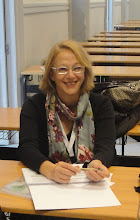Questions
1. Why did prostitution flourish?
b. Because the demand was high, and there was so much poverty.
2. Why were women in such a bad position, independent from the class they belonged to?
b. Because they could not inherit money from their male family members.
3. Why and how did Victoria become queen?
a. Because she was the only one who was able to get children. She was crowned Queen in 1838, but she did not take the throne until the birth of her first daughter in 1840.
4. Which was the largest class and why?
b. The Middle Class. People worked their way up in society by grabbing every new possibility they
could created by the Industrial Revolution.
5. The Victorian era was a very paradoxical time. Which one(s) of these statements is true?
a. Although sexuality was a big taboo, prostitution flourished during Victorian times.
c. On the one hand, the Industrial Revolution made Britain much more wealthy and prosperous, but
on the other hand it made the differences between social classes only larger.
Other group members: Floor Dupont and Lien Vandekerckhove
Labels: Victorian Era

